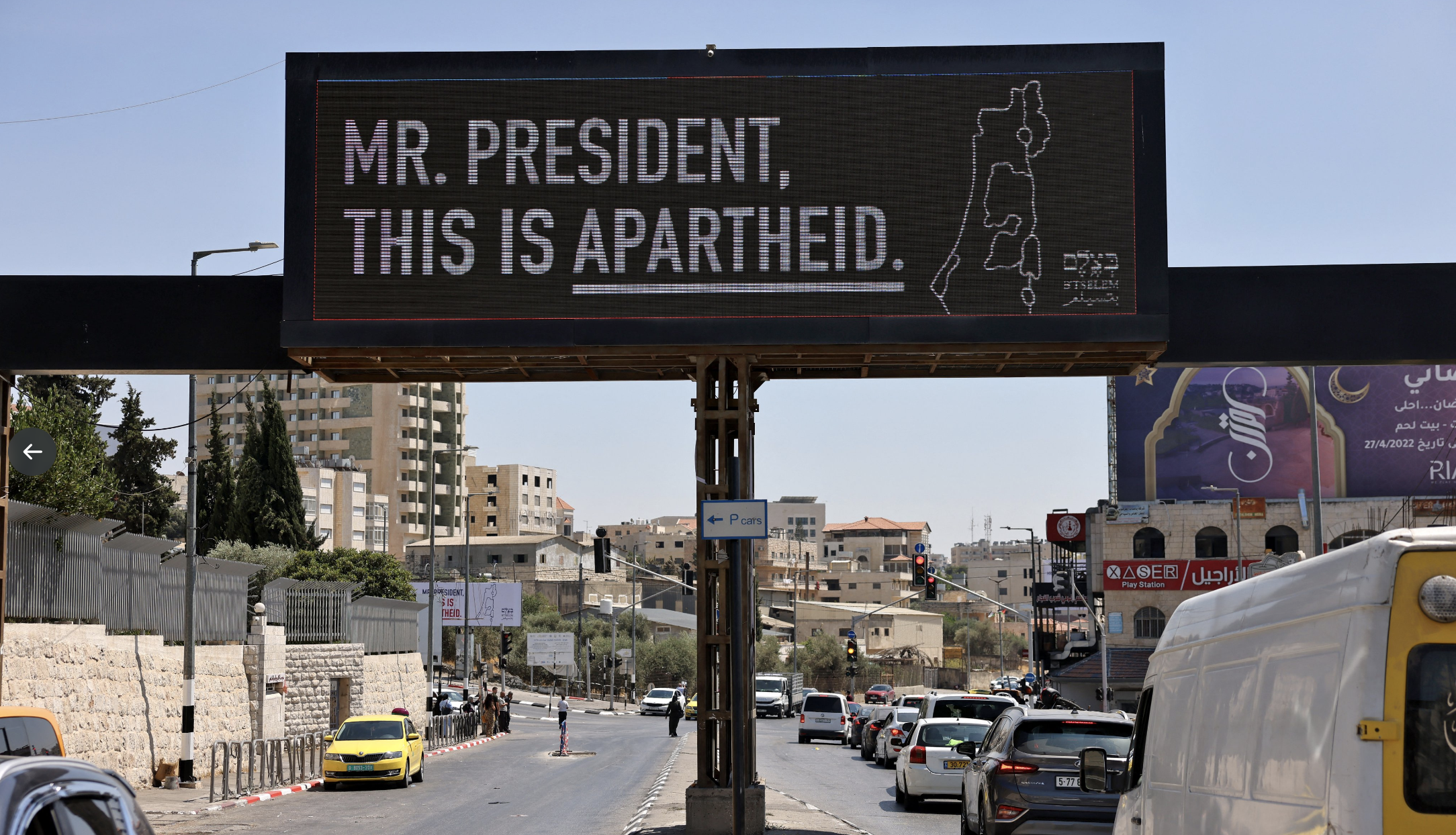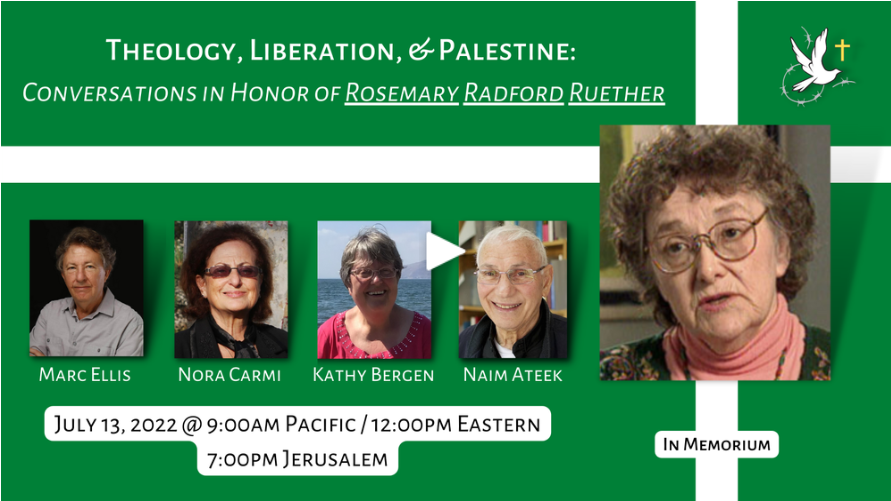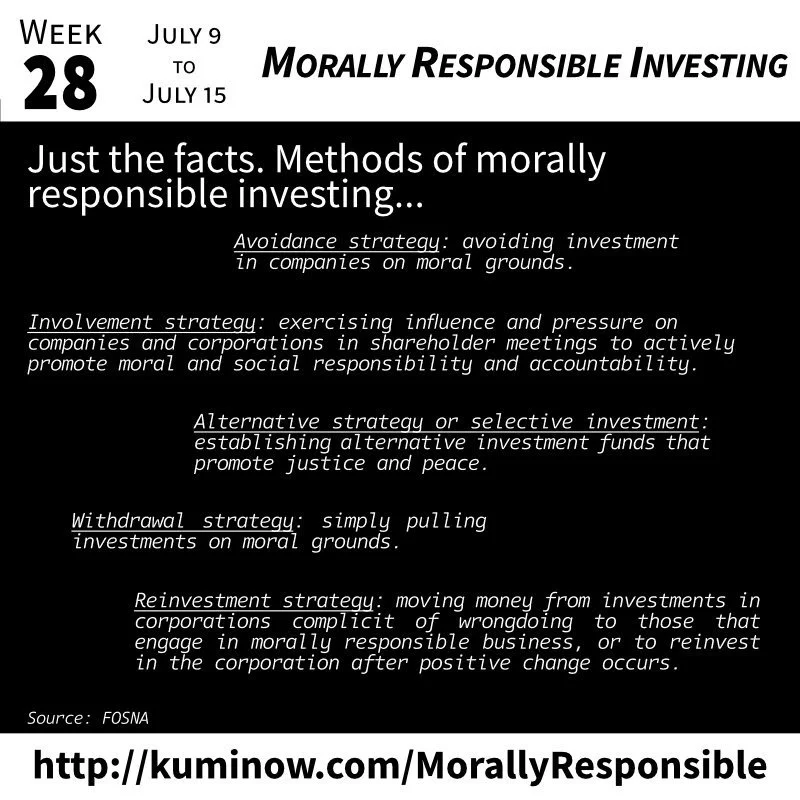Reality Versus Realpolitik
By Jonathan Kuttab
President Biden’s trip to the Middle East illustrates the height of realpolitik, the triumph of so-called “realism” over ideals and principles. It posits that what is of ultimate importance in this world consists of weapons, oil, billion-dollar deals, and a convergence of interests of autocrats, dictators, and authoritarian regimes. The Abraham Accords, first promulgated by Trump and Jared Kushner, is being aggressively pursued by the Biden Administration. The Accords represent an open rejection of the principles of justice, human rights, and international law in favor of an open alliance between an unrepentant Israel and regional autocratic regimes, whereby the latest weapons of destruction, privacy invasion, and population control—which have been “field tested” on Palestinians—can be openly shared and sold to oppressive regimes. Organizations like the Philos Project gloat over these accords as being “an advent of peaceful relationships” between Israel and Arab regimes, while lamenting that the autocratic “leader” in the Palestinian Authority lacks the courage to openly join the new alliance. What happens to the Khashoggis and Shereen Abu Aklehs and their peoples “may be unfortunate, but this is life. Get over it, and get with the program.” The future is one of perpetual conflict and war. Only the powerful, adequately armed, and those unhampered by ethics or morality can achieve security as they force acceptance of their power and privilege in concrete terms.
Yet, those who believe in justice, freedom, democracy, human rights, international law and, yes, genuine peace and reconciliation have not given up the fight. Last week witnessed the Episcopal Church pass resolutions calling for equality and challenging the administration to oppose those Israeli laws that discriminate and privilege Jews over non-Jews in Israel. This followed the overwhelming success of resolutions passed by the Presbyterian Church (USA) clearly naming Israel as an apartheid regime, recognizing the Palestinian Nakba, and calling for justice in Israel/Palestine. We celebrated too this week the amazing life and courageous work of feminist and liberation theologian Rosemary Radford Ruether. At the root of these and other positions is faith that God is sovereign in the affairs of this world, and that evil, however strong it may appear, will never have the last word.
At times, this position may sound a bit naive. One can hardly blame victims in the midst of their suffering and oppression for despairing and for wailing with the psalmist, “How long or Lord, how long?” The wicked and the powerful seem to be in control, and they are hardly even challenged. International law (and not just in Palestine) is openly flouted as suffering continues unabated. Those who call for putting the interests of one’s own country’s ahead of international law and cooperation appear to hold sway, regardless of the consequences for world peace, international stability, and the very survival of the planet.
Can the church maintain a prophetic witness in such an atmosphere? Do we have any “Good News” to pronounce for a hurting world? Is our message of the coming of the Kingdom of God one of unrealistic naïveté, pathetic whining and/or irrelevant pronouncements?
At its root is the question of whether God really exists and whether He cares about his creation or whether He has abandoned us to our own devices.
I believe the evidence of history shows that despite outward appearances, God is at work in this world. Tyrants fell at the height of their power, oppressive regimes collapsed over a matter of weeks, and the march of human rights and international law has achieved great advances, despite some setbacks. Slavery and colonialism (as classically practiced) were brought to an end, and equality is now recognized as being the proper and required standard. Freedom and self-determination for the majority of the peoples of the world is now an acknowledged reality, not merely a distant aspiration. Even in the darkest corners of the globe, the flame of liberty still inspires many to steadfastness and courage.
Yet, this does not come automatically or easily. Much work, much blood, sweat, and tears, is necessary to achieve this. Christians who repeat the Lord’s Prayer recognize their role in ensuring that “God’s will be done on earth as it is in heaven.” Our hope of ultimate success is grounded upon our faith in the risen Christ. For us, this hope is not wishful thinking and empty optimism, but the most realistic position.
We are also encouraged by signs of hope that include the solidarity of many from different groups and faith traditions, as well as secular people and organizations. Personally, I am most encouraged by allies from the Jewish community, like Jewish Voice for Peace and Breaking the Silence, whose testimony reminds me constantly that the fight against Zionism is not at all a fight against Jews, that we must continue to fight anti-Semitism, bigotry, and racism, and that the just future we hope and work for is one of reconciliation and coexistence. It is not a victory of one racial or religious group over-and-against another. The challenge for those involved in interfaith dialogue and efforts at reconciliation is to look for opportunities for co-resistance, rather than pant after mirages of “coexistence” that come in the form of the normalization of abnormal and oppressive situations.
I am also encouraged by the resilience and steadfastness (sumud) of the Palestinian people in the face of unbelievable odds. They continue to believe in justice and in the ultimate goodness of God. Betrayed time and again by their own leaders, the Arab world, the international community, and even by supposedly progressive PEPs (progressive except for Palestine), the Palestinian people continue to struggle and survive and believe in a better future defined by equality and justice.
At FOSNA, we affirm that such a future is not only possible, but is actually more realistic and likely to succeed than the purveyors of realpolitik indicate. This is our belief and our mission.
Take Action!
Contact Mayorkas!
Demand Secretary Mayorkas to NOT Admit Israel into the Visa Waiver Program
(AJP Action) Contact the Secretary of Homeland Security, Alejandro Mayorkas now - The Department of Homeland Security (DHS) has announced it will begin the process to admit Israel to the U.S. Visa Waiver Program (VWP). The United States should not provide an exception for Israel to join the Visa Waiver Program while continuing to discriminate against Palestinian Americans. Tell Secretary Mayorkas NOT to admit Israel to the Visa Waiver Program.
Get Involved!
FOSNA invites you to join us in the following events and activities:
Watch
Watch a powerful conversation in honor of a remarkable woman at the link below.
July 20
Defund Racism: No More Tax-Free $$ for Israeli Settlements and Ethnic Cleansing of Palestinians
(Good Shepherd Collective) This event is intended to introduce the #DefundRacism campaign, which targets pro-Israeli organizations disguised as 501c(3) charities that fund Israeli settlements using tax-deductible donations from the United States. These organizations are therefore complicit in the ethnic cleansing of Palestinians from places like Sheikh Jarrah, Silwan, South Hebron Hills, and many other places in Palestine.
9:00am Pacific / 12:00pm Eastern / 7:00pm Palestine
Weekly
Sabeel Prayer Service. Join Sabeel every Thursday (6pm Jerusalem) for online Bible Study, discussion, and prayer. Examine scripture in light of the ongoing realities confronting the Palestinian Church and the pursuit of Palestinian liberation.
Wave of Prayer. Subscribe to receive Sabeel's Wave of Prayer, enabling friends of Sabeel around the world to pray over issues of critical concern to the Holy Land on a weekly basis.
Kumi Now! (Week 28) Morally Responsible Investing. Israel’s oppression of Palestinians and flouting of United Nations resolutions is ongoing and unwavering. Dozens of international corporations profit off this oppression by contracting with the Israeli government and participating in the construction of illegal settlements. As we mark the beginnings of the BDS Movement on July 9, 2005, here’s what you need to know about morally responsible investment and what you can do so that together we can rise up.
Podcast: On the Ground for Palestine. On the Ground for Palestine is a weekly podcast to keep you updated on the news events and activism happening on the ground in Palestine and Israel. Each episode is short, less than 10 minutes, covering major stories from the past week, and is available as an audio-only podcast and as a video podcast. Our goal is to create something that is useful for activists for Palestine around the world.



